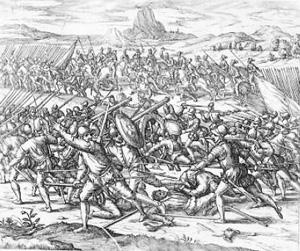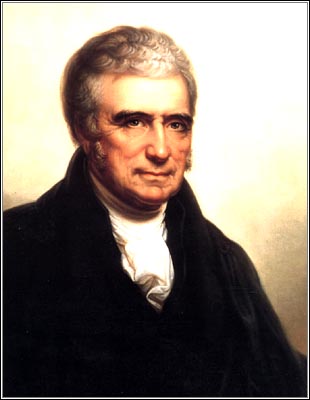
The Doctrine of Discovery allowed European monarchs to lay claim to vast territories 'discovered' by their proxies, such as the conquistadors Pizzaro and Cortez.
The origins of
the Discovery Doctrine can be traced back to the Crusading-era
papacy of Innocent III and IV, in the thirteenth century (see
Innocent III in Faces). Two centuries later, Pope Nicholas V
gave a Portuguese king permission to claim lands his armies had
'discovered in Africa. Pope Alexander extended those same
territorial imperatives to Spain's King Ferdinand and Queen
Isabella in 1493, granting them the right to conquer lands and
peoples in the new world across the sea. Arguments between
Portugal and Spain led to a treaty which clarified that only
non-Christian lands could thus be taken, as well as drawing a line
of demarcation to allocate potential discoveries between the two
powers.

Though its origins were theocratic in nature, the Discovery
Doctrine became a settled concept of international law in the 16th
and 17th centuries. At that time, European monarchs claimed primacy
over lands owned by native people, but European governments began
disavowing this doctrine in the 18th century. The United
States, however, incorporated the legal tenets of the Discovery
Doctrine into its founding principles. Chief Justice John
Marshall gave conditional support to those tenets in his opinion in
Johnson v McIntosh, in 1823. Nevertheless, ten years
later, in Worcester v. Georgia, he also ruled that Indian
nations were sovereign governmental entities retaining all of the
privileges accorded to nationhood.
click here for more on the discovery
doctrine
Related Events
Related Flashpoints